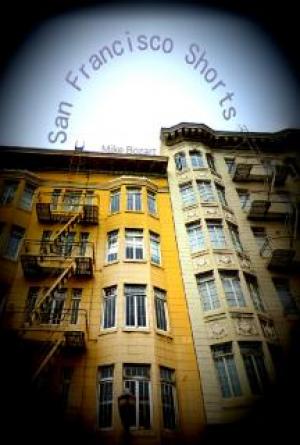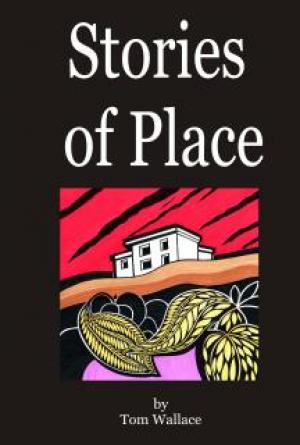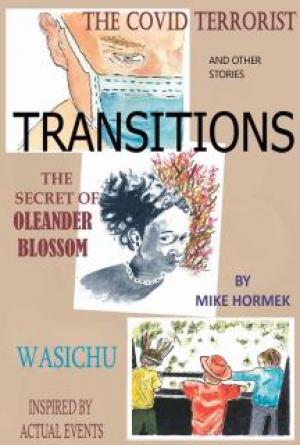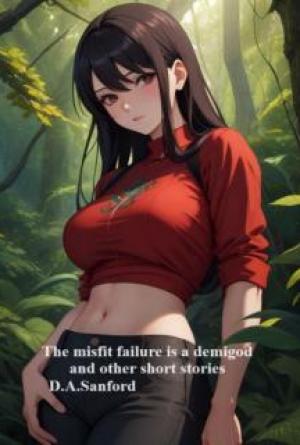Three Spacemen Left To Die!
Commander Al Andrews had closed and locked the energy-proof, neutralizing bulkheads against the creeping red glow that infected one quadrant of his circular space ship. Now he stood in the Control Center, in the mid-section of the revolving wagon-wheel ship, looking at Oakey Matthews.
There had been times aboard this ship when a whole crew had been comfortable in months-long trips through space. But now there were only three men, three men fleeing from death and it was no longer comfortable here, because death was breathing down the neck of at least one of them.
Oakey was intent on the instruments in front of him. Oakey was young, with a face that glowed with velvet skin. Even in space Oakey shaved every day, shined his shoes and pressed his uniform. Al was sloppy, bearded and ungroomed. But Al had lived most of his 50 years in space.
Oakey looked up toward Al. His young eyes searched the hard leathery face of his commander. He saw the grim set to Al's jaw and the hard lines around the older man's eyes. Al was cold. Nerveless as a piece of rope.
"How's Joe?" Oakey asked.
Al shook his head. "Last stages," he said. The commander went to a tier of built-in drawers across the room from the control panel. His arm reached out, pulled on the third drawer from the bottom. From this drawer he took an old-fashioned revolver and a box of shells. Not ordinary shells. The bullets were plastic, strong enough to pierce flesh, too soft to rupture the walls of the space ship.
"Don't do it, Al," Oakey said, watching the commander.
Al shook his head. He slipped bullets into the cylinder.
"We're the last earthmen, let's not die killing each other," pleaded the young man. "This thing will catch us all before long. Let's stop fighting it. Joe's our pal. Let him live."
"We're the last earthmen and we're going down fighting," said Al.
"We've fought. For ten years we've fought. Now we're in space, Al. So far from the sun we can't tell it from any other star. There's no earth women here. Even if we live a few years longer, the strain of earth-blood dies with us. We're licked, Al. Let's surrender gracefully."
"We're earthmen," said Al. "We fight."
"The last earthmen. There's nothing left to fight for—"
"Except life," said Al. "Now listen, Oakey. I'm still commander. I know what I'm doing and you take orders from me—or it's mutiny. Yeah, I know the Quinnies have covered the earth. From the Arctic to the tropics men died shooting sparks like fireworks. But the earth isn't the only planet in the Galaxy where men exist. You didn't take that first trip this ship made, did you, boy?"
Oakey laughed. "That was ten years ago. I was a kid in high school then."
Al flipped the cylinder closed and made sure the gun was ready to use. "We went to another system," he said. "A fluke, maybe. Or maybe the Old Man planned it. He believed in interstellar travel by dimensional short cuts. I was third mate, like you. I fingered the controls and he gave me the figures. Something like a double right-angle repeated twice. I was dizzy as hell when I finally put old Wagon Wheel on a straight course, but after I blinked my eyes a couple of times and looked out through a porthole, I knew that the Old Man was right. There was the cutest little green planet, and the nicest, warmest fourth-magnitude sun you ever saw." He smiled and the hard lines disappeared for a moment. "Where are we now?"
"Sixty-three, seven, ninety-one. At 1300. I can work it down to twelve decimals, sir, if you want—"
"Never mind. Just watch the instruments. The chronometer lines will tell you when."
Al stuffed the revolver under his belt in the front of his trousers. "We're going back to that planet, Oakey. A pretty little place, soft and warm as a tropical isle. And there were nice looking people there—human beings like us." Al closed his eyes. "Such women. Nice round shoulders. Soft brown eyes you could spend a lifetime looking into. There was one...."
Al paused while his fingers seemed to caress the butt of the pistol. "She called herself something like Dwea.... I taught her to speak English a little." The commander shrugged his shoulders. "Maybe you'll find a girl there, Oakey. Maybe I'll see mine again. That was ten years ago." He chuckled. "She's probably got a husband and six kids now."
Al took a step toward the doorway marked C, one of four, each leading to a quadrant of the wagon wheel.
"Please, sir," said Oakey. "Don't—"
Al pulled open the door. "Time's getting short and we can't take the Quinnies to that planet with us." A sweep of centrifugal force caught him as he opened the door. His big, hairy hand caught the rung of a ladder beside the door. "Joe went on that trip. He and I were the only ones of the crew that didn't catch the Quinnies the minute we landed back on earth. We ducked out again, shipping with a new commander with a new crew on old Wagon Wheel again. We went to Ganymede."
"Yeah," said Oakey. "I was cabin boy on that trip. My first space flight. Maybe that's how I escaped the Quinnies too." Oakey glanced at the chronometer. "We've still got fifty-five minutes. Why don't you wait twenty minutes or so?"
Al heaved a sigh and swung onto the ladder, letting himself down, which was outward, toward the rim of the wheel. "I might have trouble," he said.
Al put his hands against the bulkhead door. It was cool enough. The Death Glow wasn't seeping into the ship. The Glow itself wasn't the contagious part. It was the sparks that shot from men's bodies. The early stages of the disease were the dangerous ones, for then the sparks were often too small to be seen. In the later stages a man suffering from Quinnies gave off his own warning and could be avoided.
Al took a small intercom phone from a box beside the doorway. He spoke into it. "Joe."
A voice came back. "Yeah. That you, commander?"
"Yes, Joe. How do you feel?"
"Like hell, I guess. Funny though, there's no pain. Just annoying. Like the hiccups. And I'm getting weaker."
"You're in the last stages."
"Maybe. Maybe not. I've heard of guys that lived fourteen months shooting sparks worse than I'm doing right now."
"I'm coming in, Joe."
"Give me a break, Al. I won't come near you or Oakey. I'll stay here. There's food, water ... everything I need. Just let me live till it starts to hurt. Maybe I'll ask you to come in then."
"There isn't time, Joe. Besides, it'll be easier this way. You're dying. You're shooting sparks from your hair roots. Something might happen and Oakey and I would come down with the Quinnies. We are the only earthmen left now, Joe."
"Don't be too sure." Joe's voice was harsh, like the hissing of sparks. "You might have the Quinnies and not know it."
"You're not in pain?"
"Hell no. I told you I wasn't. But I'm lit up like the Fourth of July, Guy Fawkes Day, Bastille Day and the Chinese New Year."
"Your brain's a dynamo of energy, Joe. It's shooting Quinnies in all directions through every nerve fibre of your body."
"Are you trying to make it easier, or something?"
"I'm trying to make you understand. I've got to kill you. I'm not doing it because I want to. You're my best friend, Joe. We've had a lot of swell times together. But I've got to kill you—Oakey and I have to land on the Green Planet and we're not taking the Quinnies there with us."
"You're doing me a favor, huh? Some favor. Better make sure you haven't got the Quinnies yourself before you try to make like God."
"I'd know if I had 'em," said Al. "I'm coming in, Joe."
"I'll kill you first," said Joe. "As a favor to myself."
Al shot back the bolt. "Don't try it, Joe."
The commander pulled on the door. It swung open a couple of feet. A bolt of red fire swept through the opening. But Al had expected this and he was safe behind the neutralizing door. Then Al stepped into the opening. He didn't need light, for Joe was a red glow against the quadrant wall.

Joe stood with his feet wide apart, with an aura of fire around his body. Flaming sparks seemed to lick the air to form an outline of a human being.
Joe raised his finger toward the commander and Al didn't wait. He squeezed the pistol's trigger and then stepped back behind the door as flame lashed toward him again. The report of the gun echoed.
"You murderers!" Joe groaned. His body hit the floor with a thud.
Al waited, then opened the door again. Joe lay on the floor. No sparks came from his body now. He looked like a sleeping man.
Outside, the cherry red glow of the quadrant ebbed till the sides were black as space.
Al put the gun back in the drawer in the control room. He closed it and then sank into a chair beside Oakey. The young man said nothing, but kept his eyes glued on the control panel.
Finally Al spoke. "Ever take the test, Oakey?"
"No."
"Neither did I. Scared I might have it, I guess. But I kept telling myself that I might catch the Quinnies from the instruments they used to test you. Anyhow, I know the symptoms. I'd show symptoms if I had the Quinnies, wouldn't I?"
"Dunno. Joe knew the symptoms. He must have had it for a long time before he began shooting sparks." Oakey paused for a moment. "We've probably been exposed, Al."
"Yeah, we've been exposed a thousand times," the commander said. "Everybody on this ship except Joe and I died from the Quinnies after we returned from that voyage ten years ago. Everybody else I sailed space with died too—except you. There's some kind of immunity. Maybe we've got it. You and I."
"The Quinnies isn't like measles or small pox, Al. Germs and viruses don't cause it. Something goes wrong with life itself."
"Maybe we should know something about life," Al grinned. "But after centuries of finding out about everything else, we don't know what life is. All biologists can tell us is that we're molecules strung together to make cells that produce some sort of energy."
"If we knew the cause of life...."
"We don't know the cause of anything ... we get to one cause and wonder what caused it. We never know the first cause, and if we found it we'd ask what caused it. Everything goes around in circles. There's the carbon-nitrogen-hydrogen cycle that makes the sun hot—elements change and get back to where they started, losing just a little energy. That energy goes out into space, loses velocity and becomes matter, matter forms suns. Maybe life is part of the merry-go-round. Maybe energy makes matter, life results from matter; life produces a little energy."
"We're generators, huh?"
"Not exactly. Did you ever study a dynamo, Oakey? It doesn't make energy, it converts one form into another form, the stuff we call electricity. But it seems to do it intelligently. Supposing your generator makes a kilowatt of power and you're lighting a string of light bulbs with it. There's ten bulbs, each using 100 watts of power, but some economical so-and-so comes along and turns out five of them. You'd expect the generator to get all fouled up, or maybe burn out some wires, but it goes along at the same speed and makes just 500 watts of power, no more, no less. Dynamos are like that, they never waste their output."
"Is that life?"
"In a way it is," said Al. "Like I said, we're not generators, but life may be just a process of making a little energy. We make just enough to keep the merry-go-round going. Then something goes wrong. We start making more than we should. We get overcharged, like a battery. The energy has to go somewhere, so we start shooting sparks."
Oakey laughed. "Your theories by-pass some of nature's laws and they would make a logician take to a sick bed, but they sound good." He turned his eyes on the chronometer a moment. "What fouls up the safety valve, as long as we're mixing metaphors?"
"Maybe we've got more than life," said Al. "We've got emotions, consciousness and a lot of things that life in general doesn't have. But you and I can control our emotions. We're cold-blooded. I just shot a friend, your friend too and you let me do it. Our cold-blooded common sense told us it was the thing to do. We have to stomp out the Quinnies before we land on the Green Planet. If you get the disease, I'll kill you, just like I killed Joe. If I get it, you'll kill me—"
"No, commander. I won't."
"Then I'll kill myself and save you the trouble. But maybe we won't get it. Maybe we're immune for one reason or another."
"We're not alike either in temperament or physically. I'm young, Al. You're older. You're a hell of a lot colder-blooded than I am. Hell, I've got emotions. I couldn't do what you did. Organically we're different, too. My cells may be the same, but they're conditioned differently. I'm allergic to certain kinds of cheese—"
"So are lots of people. I could establish an allergy to the same things you can't take. That shows our chemistry is the same."
Oakey glanced at the instruments again. "Better take over, sir. There's only four minutes left."
Al strapped himself into his seat. Oakey already had adjusted his harness and now the two men adjusted their bodies to fit the contours of the chairs that would lessen the punishment of sudden acceleration.
The commander gripped the lever that would kick atomic fuel into the rocket chambers.
"One minute," said Oakey.
Al injected the fuel and then placed his finger over the firing button.
"Thirty seconds ... twenty ... ten ... five, four, three, two—"
Both men tensed.
"—one ... ZERO!"
Their bodies strained as the ship lurched. Oakey counted the seconds with his hand, for he could not talk now. Al squeezed the control button again. This was repeated again. And again. Then Al cut the rockets. The pressure on their bodies eased. Both men relaxed.
Al unstrapped himself and swung his legs to the floor. He walked toward the porthole. He had to walk carefully, for the centrifugal pitch made the feat like balancing on a turn-table.
He reached up and adjusted the flaps. Into the room streamed warm sunlight. A glowing orb swung into view as the ship turned on its axis. A moment later they saw another disc, a bright green disc, a planet hanging in space.
"We're there!" whispered Oakey.
Al said nothing. His eyes were not on the planet, but on his hand, raised a fraction of an inch from the flap control on the metal wall of the ship. Writhing like a snake from his fingertips to the wall, was a tiny red spark!
Oakey turned his eyes from the porthole to the silent commander. He saw the ribbon of flame. His body grew tense. Slowly his hands fingered the buckles on the straps of his G-harness. He unfastened them and sprang to his feet. Al didn't try to stop him as Oakey swung across the turn-table room toward the tier of drawers.
"Make it quick, Oakey," said Al.
Oakey opened the drawer, took out the gun and thrust it into his pocket.
"Shoot me, Oakey. You've got to. We can't take the Quinnies to that planet!"
"I won't."
"It's mutiny. Give me the gun; I'll kill myself."
"There's no such thing as mutiny any more, Al. We're just two men in space. The last earthmen alive. The problem will solve itself."
"Oakey, we're not going to land on the planet alive."
"Be yourself. We've made a good fight. We lost. Let's die with a solid piece of ground under our legs. What if we do infect a planet with a plague. There's a thousand planets just like it in the universe. Every man on them will die, if not today, then in a few years from now. What difference does it make? Why should we try to keep the merry-go-round going?"
"Because ... there's a reason. We don't know what it is, but we've got to live and we've got to die. But we've got to preserve life every second we can."
"Is that why you want me to kill you? To preserve life?"
"One life doesn't matter." Al pointed to the porthole. "It's a whole world of living human beings ... people like us."
"We don't owe them anything."
Al pushed himself away from the wall, toward Oakey across the room by the tier of drawers. But the reflexes of youth were on Oakey's side. The young man's punch caught Al flush on the jaw and the bearded commander went down.
When Al opened his eyes, Oakey was decelerating the circular ship into a spiral that would set it down on the planet.
Al raised himself on his arms and pulled himself toward the control panel. "You can't do this, Oakey. You're killing a world."
"What's that world to us?"
Al looked at the metal floor plates under his body. The cherry glow was flooding from his body into the plates. Al was gone farther than he thought. For months he must have been harboring the disease, just as Joe had been ill a long time before realizing it. Al's natural resistance, perhaps strengthened by long years of exposure to the radiations of space, must have held back the final stages until the tide had burst through in an overwhelming flood. Even when Al killed Joe, Al was near the last stages himself.
Al remembered Joe's last bid for survival. Joe was much like Oakey. Joe had hated to die, he wanted to live to have soil under his feet again. But the disease had to be wiped out. And Joe had fought with his last weapon, the energy ebbing from his body.
The energy....
Grim lines appeared deep around Al's eyes. He raised his hand from the floor. His brain throbbed. Yes, his brain was a battery of energy now, the energy of life. And the purpose of life was to preserve life, a single second, or a thousand million years. Not one life, but the race. That was the aim of life.
"Oakey." Al's voice hissed.
Oakey turned from the instrument panel. His eyes focussed on the cherry red floor with Al in the center of the glow.
Sparks came from Al's mouth as he spoke again. "Before I shot Joe, I tried to make him understand. I had to kill him, and I've got to kill you whether you've got the disease or not. It's the way with things. Our individual lives don't mean a plugged nickel, but a whole race does. We can't take the Quinnies to the green planet."
"I told you, they're not people like us," said Oakey. "They just look like us. Some fish look like snakes. Some mammals look like fish. But they're not fish."
"But they are like us. I know," said Al. "An atom of iron on Sirius is the same as an atom of iron on the sun. Why can't two human cells be the same, even if they're light-years apart?"
"You're just guessing."
"I told you, I know."
"You think you know. You met a girl once. Maybe she had a nice figure and pretty eyes. Your glands got fooled."
"She was just like an earth-girl, only prettier. That's why—"
"Maybe she was pretty, but that was ten years ago. You're not handsome any more and neither is she. She's probably got six kids, you said so yourself."
"Yes, Oakey, maybe six, maybe only one kid. One that has earth blood in him. My kid, Oakey. There's still one more earthman alive in the universe. That's why I'm doing this to you."
Al let the energy flow out through his fingertips. A cherry red bolt struck Oakey right in the face.
On the green planet, a matron and her son were looking up into the stars. The boy cried out in delight: "A shooting star, mommy," he said. "Make a wish."
Trailing red sparks, the meteor seemed to veer off suddenly and speed away again into space.
"I wished that your father would return from the skies," said the woman. "For a moment, I thought maybe he had."








